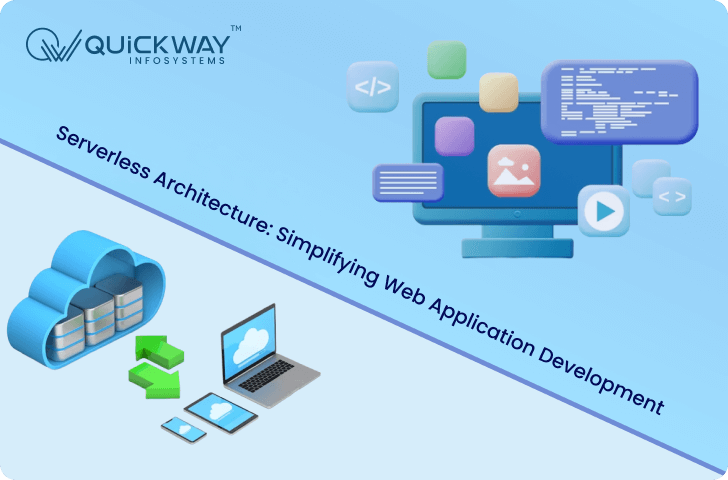Blockchain, Bitcoin, NFTs …we all have heard these names as people are constantly investing heavily in them, hoping to capitalize on the potential for substantial returns. In recent years, blockchain technology has emerged as a disruptive force, revolutionizing various industries and offering innovative solutions to long-standing challenges. Initially designed as the foundational technology for cryptocurrencies like Bitcoin, blockchain has evolved into a versatile tool with profound implications. Its decentralized and transparent nature has become a game-changer in sectors such as finance, supply chain management, healthcare etc.
The numbers speak for themselves -With a compound annual growth rate of 56.3%, the blockchain industry will be worth $163.83 billion by 2029. From 2022 to 2030, the worldwide blockchain technology industry is predicted to grow at an 85.9 percent CAGR.
This article explores the transformative power of blockchain technology, emphasizing its potential to reshape industries and revolutionize traditional systems of trust, security, and data management. With an ever-expanding range of apps & advancements in the field, blockchain is poised to redefine the way we interact, transact, & conduct business, creating a future of enhanced transparency, efficiency, and inclusivity.
Let’s dig deep!
But How Does Blockchain Have A Revolutionary Impact Across Industries?
Despite its existence for over a decade, blockchain technology has only recently gained significant attention and widespread adoption. Originally conceptualized as the underlying technology for the cryptocurrency Bitcoin, blockchain has since evolved into a versatile and decentralized system with applications beyond the realm of finance. Its inherent characteristics of transparency, security, and immutability have captured the imagination of industries, governments, and innovators worldwide.
At its core, a blockchain is a distributed and continuously growing digital ledger that records transactions in a secure and transparent manner. Unlike traditional centralized systems, where data is stored on a single server controlled by a central authority, blockchain operates on a network of computers (nodes), each possessing an identical copy of the ledger. This decentralized structure ensures that any changes to the ledger require consensus among the majority of nodes, making it nearly impossible for any single entity to manipulate or tamper with the data. In this article, we will delve into how blockchain is reshaping diverse industries in the modern era.
Finance:
The financial sector was among the first to embrace blockchain technology, leveraging it as a powerful tool for secure and transparent transactions through the emergence of cryptocurrencies like Bitcoin and Ethereum. Blockchain also paved the way for smart contracts, which facilitate self-executing agreements, eliminating the need for intermediaries and streamlining processes.
Beyond cryptocurrencies and smart contracts, blockchain finds application in fraud protection, KYC (Know Your Customer), and AML (Anti-Money Laundering) compliance. By utilizing blockchain, financial institutions can mitigate fraud risks and enhance operational transparency.
Supply Chain Management:
Blockchain is revolutionizing supply chain management by offering enhanced transparency and security. By enabling the transparent and secure tracking of products and supplies, blockchain reduces fraud, counterfeiting, and inefficiencies along the supply chain.
Each step of the supply chain can be accurately traced and recorded on the blockchain, enabling businesses to identify and address bottlenecks while minimizing fraud and counterfeiting risks. Additionally, blockchain technology ensures greater transparency, enabling companies to comply with regulations and bolster customer confidence.
Healthcare:
The healthcare industry stands to benefit significantly from blockchain technology, particularly in addressing challenges related to data privacy, interoperability, and security. With blockchain, patients gain more control over their health data while ensuring its confidentiality.
Blockchain facilitates secure sharing of health information, allowing patients to grant access to doctors, researchers, and healthcare providers as needed. This seamless interoperability among different healthcare systems empowers healthcare workers to access patient data instantly, leading to improved treatment outcomes, accurate diagnoses, and enhanced patient care.
Securing Creativity and Innovation: Harnessing the Power of Intellectual Property
The safeguarding of intellectual property (IP) is being revolutionized through the decentralized and immutable nature of blockchain technology. By leveraging blockchain, creators now have a robust and tamper-resistant platform to register their works, establishing ownership and providing indisputable timestamping proof. This innovative approach facilitates the licensing, distribution, and monetization of digital creations in a secure and transparent manner. Utilizing systems akin to smart contracts, intellectual property rights and royalty payments can be automatically enforced, minimizing conflicts and fueling productivity in the creative realm.
Transportation and Logistics
The integration of blockchain technology into transportation and logistics operations has brought about enhanced transparency, traceability, and efficiency. Stakeholders can now seamlessly track the progress of items, significantly reducing delays and allowing for more accurate delivery projections. The advent of blockchain-powered platforms has simplified freight documentation, minimizing paperwork, and greatly improving customs clearance processes. Moreover, these platforms automate payment settlements, providing logistics firms with better financial management capabilities.
Reimagining Insurance
In the insurance sector, blockchain has emerged as a transformative force, offering a transparent and secure platform for policy management, claims processing, and fraud detection. By leveraging distributed ledgers, the verification of policyholder data becomes more efficient, reducing the likelihood of erroneous or fraudulent claims. The automation of claim settlements results in faster and more precise reimbursements. Furthermore, blockchain facilitates the creation of parametric insurance policies, enabling automated payouts in response to specific occurrences or circumstances. This innovative approach adds an extra layer of efficiency and reliability to the insurance industry.
Conclusion
In conclusion, blockchain technology has the potential to revolutionize various aspects of our lives by elevating transparency, security, and efficiency. As a decentralized and transparent system, it facilitates safe and trustworthy transactions without the need for intermediaries. The transformative impact of blockchain is evident, offering numerous advantages in sectors like finance, healthcare, and supply chain management.
Looking ahead, increased adoption and continuous innovation are expected as blockchain technology continues to mature and evolve. As it becomes more accessible and scalable, blockchain is likely to find applications beyond the currently explored industries. Smart contracts, decentralized applications (DApps), and other advancements will contribute to the widespread integration of blockchain solutions in various aspects of daily life.
However, challenges such as scalability, energy consumption, and regulatory frameworks need to be addressed as the technology evolves. By tackling these issues, blockchain can become more sustainable and inclusive, ensuring its positive impact on a global scale.
Overall, the potential of blockchain technology to transform industries and drive positive change is undeniable. As businesses, institutions, and individuals recognize the value it brings in terms of trust, security, and efficiency, we can expect to witness a transformative shift towards a more decentralized, secure, and interconnected future.



